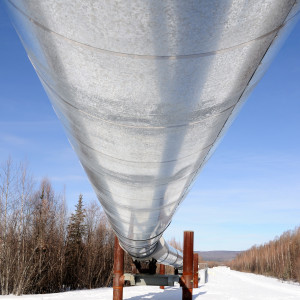Residents of Michigan were surprised Wednesday night by the news of a coming gas shortage. Gov. Gretchen Whitmer (D) declared a state of emergency and area utilities sent out messages urging people to turn their houses down to 65 degrees even as outside temperatures broke 99-year old records.
“You can play a role in helping people across the state survive these extreme temperatures,” Whitmer said in a video message. “Please do. We’re calling on every Michigander to do your part and help us weather this storm together.”
In response, GM sent workers home more than a dozen plants and urged thousands of other employees to telework. The halt work order at four GM plants came after utility Consumers Energy asked customers to help conserve natural gas. Fiat Chrysler Ford Motor Co. also adjusted production schedules to use less natural gas.
The announcements were dramatic, but fortunately the problem was shortlived. By early Thursday afternoon, GM was starting “limited operations”at plants in Flint, Pontiac, and Lansing, Mich. Other manufacturers were adjusting their schedules on a shift by shift basis, trying to balance
What happened? The cause of the grim announcements was not, as many may have feared, a fuel shortage like those experienced in New England. A fire at a key compressor station owned by Consumers Energy was to blame. Compressor stations are spaced along the length of a natural gas pipeline to ensure that the fuel maintains the appropriate pressure and can continue to flow.
Once the fire was detected, automatic equipment shut a fire gate to close off fuel to the blaze and limit damage. Afterward, personnel did a controlled burn of the remaining fuel to allow access to the pipes. Because the damage was relatively easy to assess, Consumers Energy could accurately predict how long supplies would be constrained–a mere 24-48 hours.
In fact, because the company had access to underground storage fields in Northville and St. Clair the main concern was the time it would take to pump fuel out of the ground, rather than the supply itself.
This puts Michigan in a very different situation from New England, where pipeline construction has been stymied by environmental activists for years.
Outside of Newport, R.I., thousands of customers face a week without natural gas as utility company National Grid deals with problems with gas supply. On Monday, the utility preemptively shut off service to roughly 6,400 customers in Newport and 340 customers in Middletown because of low pressure concerns. They anticipate that it will take at least a week to resume service.
“This will be a multi-day event, possibly a week or longer,” said Rhode Island Gov. Gina Raimondo. “To set expectations, this will be many days, a week or more.”
As in Michigan, part of this supply shortage was triggered by problems in a gas pipeline, though the pipeline operators have been loath to explain what exactly these problems were. Algonquin Gas Transmission Co., the company that supplies National Grid with natural gas, blames at least part of the issue on New England’s lack of pipelines.
“Natural gas pipeline capacity in New England remains an ongoing concern, particularly during severe cold conditions,” said Marylee Hanley, a spokesperson for Algonquin, in a statement. “Algonquin remains committed to engaging policymakers and stakeholders to address this concern.”
The example of Michigan shows that access to a reserve supply of energy can help ameliorate natural gas outages. At least some in New England are resisting this message, though. Two lawsuits have already been filed in Rhode Island against National Grid and pipeline operator Enbridge on behalf of residents and businesses.
Temperatures are expected to rise sharply at the start of the week.

